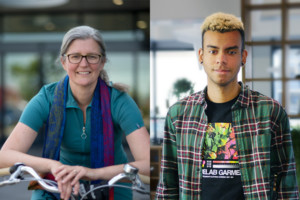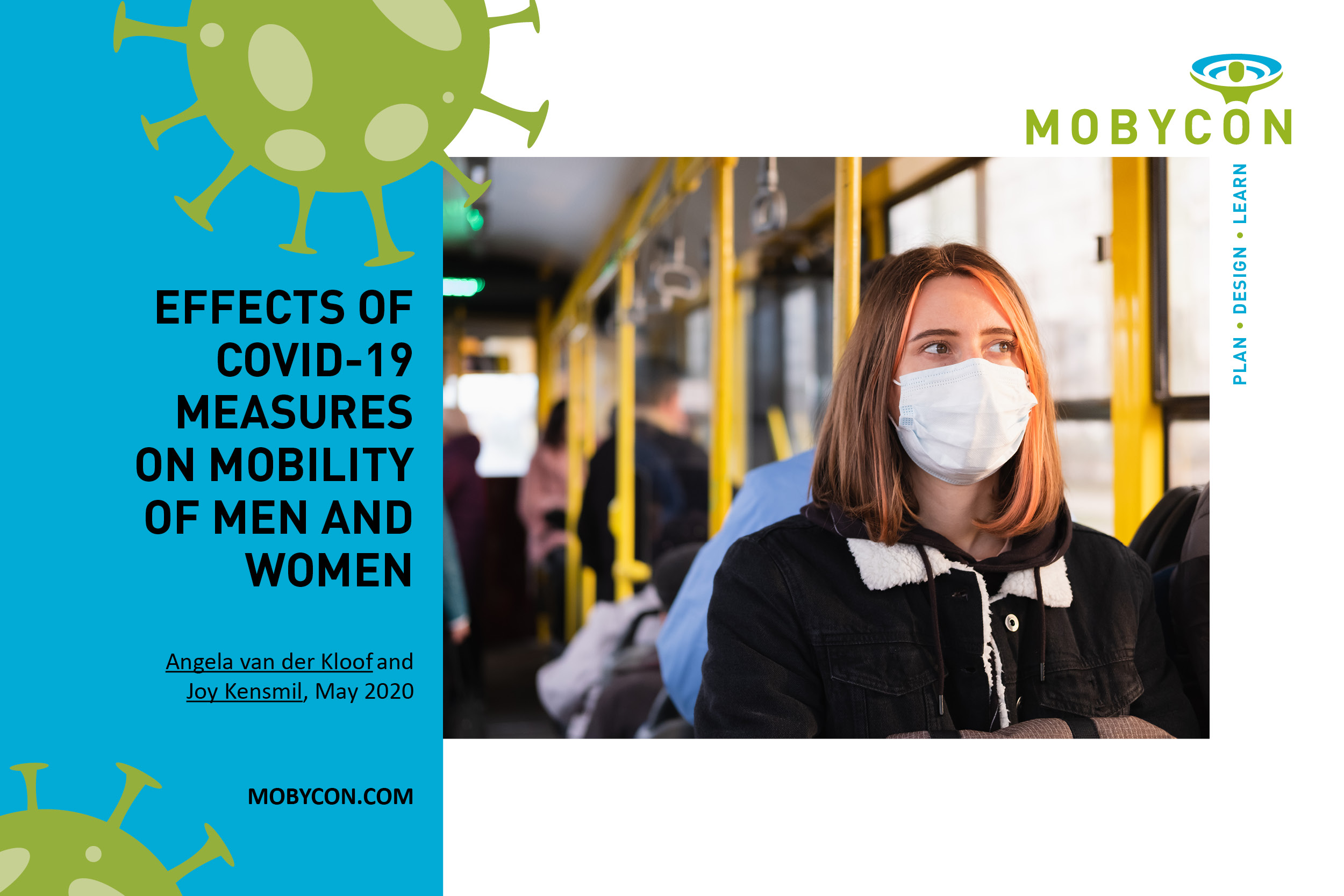COVID-19 / Mobility
The effects of Covid-19 measures on the mobility of men and women
The following is a summary of research performed by Angela van der Kloof at Mobycon and her colleague Joy Kensmil from Mobypeople. The original Dutch version of this research article with sources and the full list of recommendations can be found HERE: www.verkeerskunde.nl/32020gendereffectencovid-19
When compared to the Netherlands, it is much more common in the international traffic and mobility world to ask whether certain measures or trends have different impacts for men and women. A question about the gender effect of COVID-19 measures on mobility in the Netherlands from our international network prompted us to investigate. We were also curious whether governments, companies and/or organizations can do anything to support more severely affected groups.
The results of this research provide food for thought, discussion and action on how the mobility sector can contribute to mitigating the effects on those groups that are most affected by the measures.
To view the full detailed version of this research article from Angela and Joy, click HERE
Our Methodology
 The main methodology for this study was the analysis of data from Apple, Google and Translink about changes in mobility patterns, together with data from Statistics Netherlands and SCP. Figures about mobility were combined with those about the occupations of both men and women, then relating them to the impact of COVID-19 measures on their ability to perform those occupations. From this, we were able to make a detailed analysis of the expected differences in effects of these measures on the mobility of men and women. We also collected additional relevant data through desk research.
The main methodology for this study was the analysis of data from Apple, Google and Translink about changes in mobility patterns, together with data from Statistics Netherlands and SCP. Figures about mobility were combined with those about the occupations of both men and women, then relating them to the impact of COVID-19 measures on their ability to perform those occupations. From this, we were able to make a detailed analysis of the expected differences in effects of these measures on the mobility of men and women. We also collected additional relevant data through desk research.
Finally, we conducted two interviews with organizations that are in direct contact with people for whom we consider it plausible that the measures would have a major impact on their mobility. The aim was to get an idea of what governments, companies or organizations could do in the near future to mitigate the effect of the measures on these vulnerable groups in society.
Conclusion
From our exploratory study, it can be concluded that the impact of the Corona virus on mobility rates will be greatest among women, especially women with a lower level of education. Less educated people generally have had fewer opportunities to work during this period and therefore travel a lot less. As a result, there is not only more uncertainty for less educated women during the Corona crisis, but also a risk of financial hardships and social isolation.
If we look ahead and list the alternatives for bus/tram/metro and for carpooling with someone who is not a member of the same household, it is clear there is a greater chance that women are effected less favorable than men. Women will have to put in relatively more effort than men to get to their destination, however the difference is reduced when using electric bicycles and mopeds over a regular bicycle. This is also in line with expectations that women will have fewer alternatives at their disposal. In particular, first-generation women with a non-Western background, less educated women and single mothers are more likely to experience mobility hardships because they have few alternatives to urban public transport.
Interviews
Much has already been said about the fact that this crisis will widen the gap between people who have opportunities and those who do not. Our survey further shows that those already in a more vulnerable position are likely to be most affected by financial insecurity, less access to different mobility options and a greater risk of social isolation.
To gather ideas about what governments, companies or organizations can do to mitigate the effect of physical distancing measures on vulnerable groups, we interviewed two social organizations in Tilburg, Netherlands, that are in direct contact with vulnerable groups in the city. One of a series of recommendations reads: “Be clear about how the public transport can be used as safely as possible and what the rules are without frightening people. Make sure that good information is also available in different languages.”
Follow-up research
In this exploratory study, we used existing data and performed an detailed analysis of the impacts we expect from the COVID-19 measures on the mobility of men and women in the Netherlands. A good insight in the actual differences in impacts, and the implications of those differences, requires more extensive research, for which our research can be used as a stepping stone.
Furthermore, research can be conducted into the needs and plans that exist among organizations that work with the groups that are now especially vulnerable, such as lower educated women, single mothers and first generation women with a non-western migration background. In the coming weeks and months, mitigating measures will be implemented. Research into how these measures are organized, by whom, and with what motivation is needed, along with investigating how they work out and why they are successful or not. This will establish lessons and approaches for future events.



 ">
">